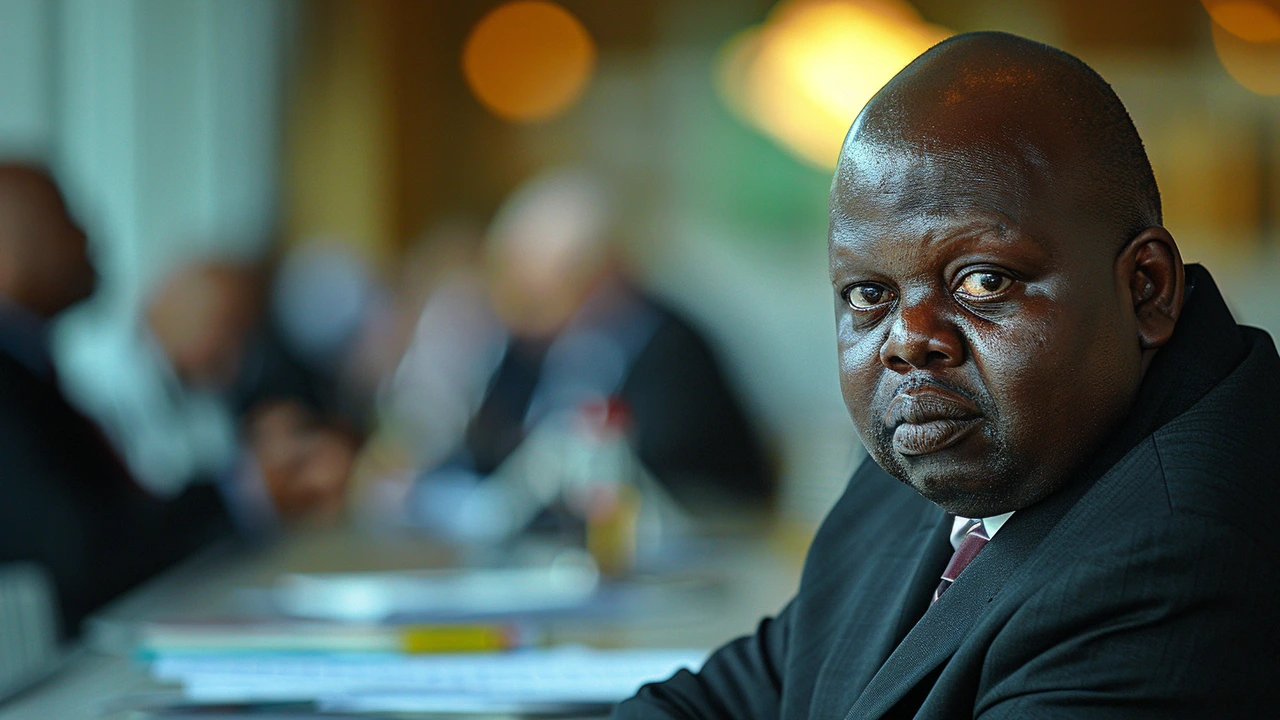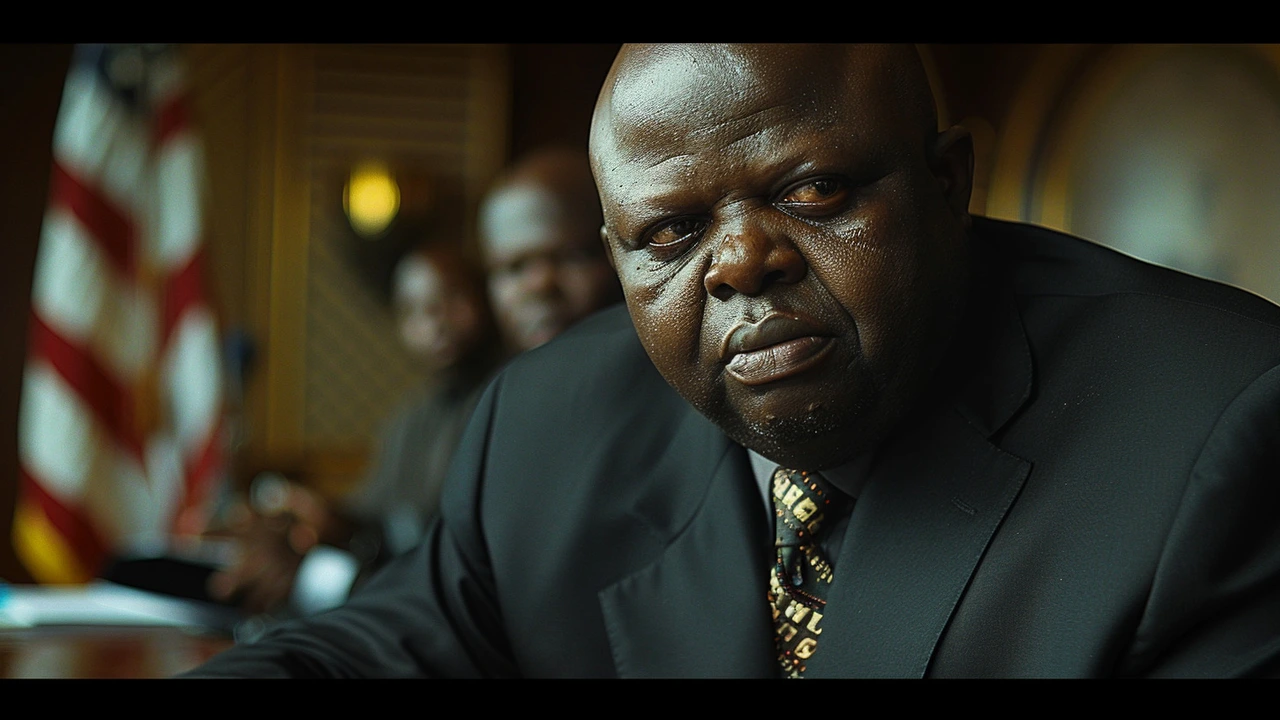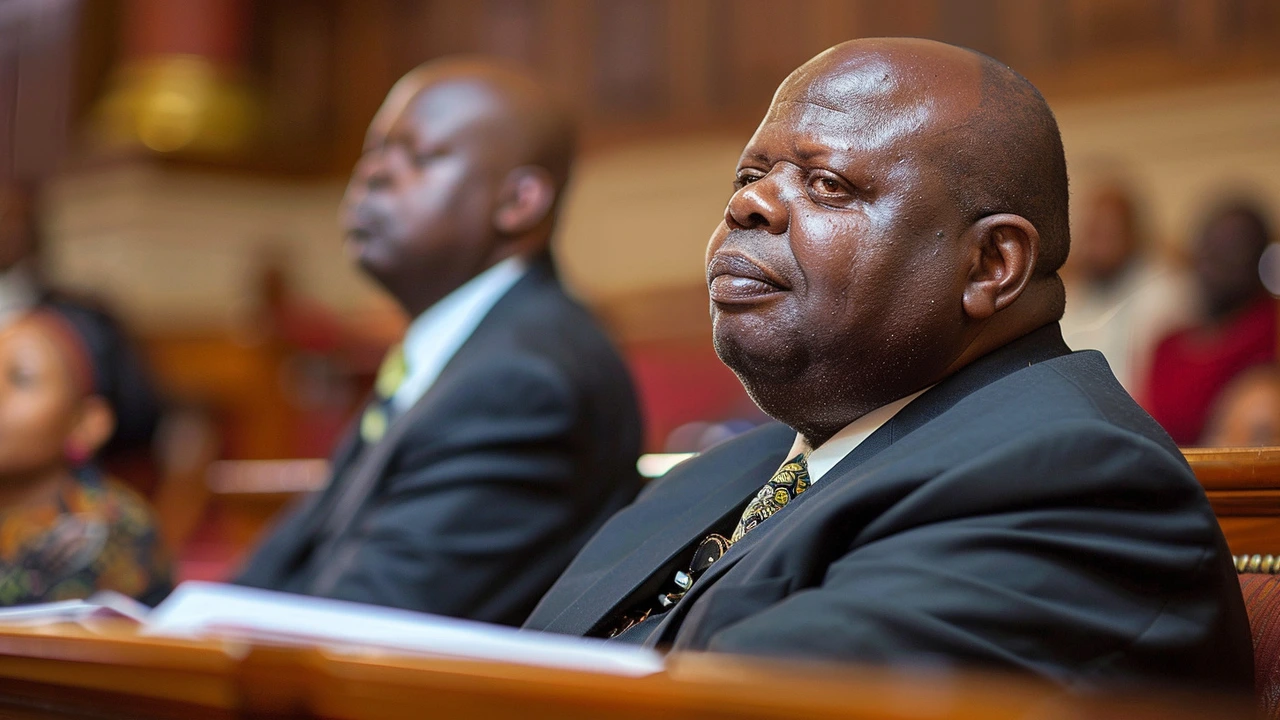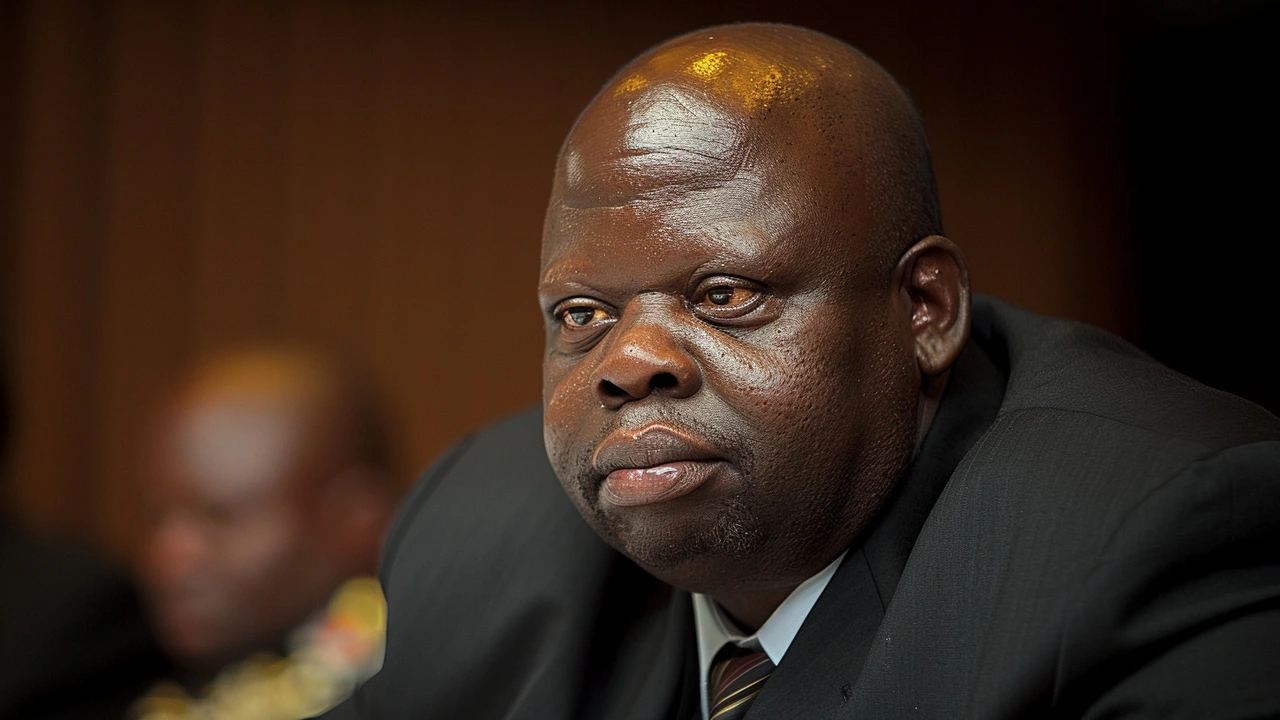John Hlophe's Controversial Appointment
John Hlophe, previously known as the disgraced Western Cape Judge President, has taken up a new role in a different arm of government. His appointment as the chief whip of the uMkhonto weSizwe (MK) Party has stirred discussions about the implications of his new position in the National Assembly. Hlophe holds the grim distinction of being the first judge in democratic South Africa to be impeached, marking a fall from grace that is now shadowed by this convoluted comeback.
The announcement of Hlophe’s appointment came via an internal memo circulated by the MK Party’s secretary, Arthur Zwane. This internal communication has not only confirmed the news but has also highlighted the physical and administrative movements within the newly represented party. The MK Party, a political organization that draws significant support from former President Jacob Zuma, secured 58 seats in the recently concluded May 29 elections. However, the party's refusal to attend the initial Parliament session raised eyebrows and caused curiosity about their reluctance.

The Road to Impeachment
Hlophe’s history is marred with allegations and judicial controversy, culminating in his impeachment. His actions were scrutinized for allegedly attempting to influence Constitutional Court judges about a decision involving Zuma back in 2008. This scandal placed Hlophe at the heart of one of the most significant judicial crises in the country's history. The Judicial Service Commission (JSC) eventually recommended his impeachment. As the first judge to face this in post-apartheid South Africa, the process, both legal and political, was exhaustive and polarizing. Now, with his return to a public role, the political arena buzzes with varying opinions and heated debate.
Political Implications
The move to appoint Hlophe as chief whip demands an unpacking of the political layers involved. The MK Party’s alignment with Jacob Zuma, a former President who himself is no stranger to legal battles and controversy, adds an additional layer to this complex political chess game. Zuma’s influence, even after his presidency, appears to be shaping significant political decisions within the MK Party.
With Hlophe holding a new influential position, questions arise regarding the signals this appointment sends about accountability and transparency within South African politics. The Parliament, as a legislative body, is a place expected to uphold the highest ethical standards. Hence, Hlophe’s appointment is, understandably, contentious, considering the moral and ethical expectations from the legislative members.

MK Party's Legislative Strategy
The MK Party's refusal to attend the initial Parliament sitting suggests a deliberate strategy or an indication of internal complexities the party is resolving. Some analysts speculate that this was timed to make a strong statement about their stance on certain legislative matters or to solidify an inward organizational structure before fully diving into parliamentary participation. Whatever the reasons, this action captured significant media attention and public discourse.
Furthermore, the party is in the process of setting up robust administrative and financial operations. These steps are pivotal for the MK Party as the allocation of parliamentary funds depends on their representation in the National Assembly. Proper setup will ensure effective governance and use of resources, aligning with the rules set by the parliamentary framework.
Reflections on Governance
This newest chapter in the saga of John Hlophe’s career sparks broader reflections on governance and ethical considerations in South Africa. His return, particularly in a role of substantial influence, brings to the forefront the ongoing challenges of maintaining ethical and transparent political leadership. The narratives surrounding his earlier judicial conduct, his impeachment, and his resurgence in the political landscape make for a multifaceted discussion on justice, rehabilitation, and the intersection of law and politics.

Concluding Thoughts
Hlophe’s appointment as MK Party chief whip marks a significant twist in the ongoing political storyline of South Africa. This role, intrinsically tied to legislative effectiveness and party coherence, plants him squarely in the thick of national legislative processes. As the MK Party positions itself within the parliamentary framework, the outcomes of Hlophe’s leadership and their legislative strategies will undoubtedly shape public opinion and political discourse going forward. While his return prompts varied reactions, it underscores the complex dynamics of political redemption and the intricate tapestries woven by South Africa’s unique political history.


Eric DE FONDAUMIERE
June 21, 2024 AT 17:34John Hlopbe is back in the game, wow!
Pauline Herrin
June 21, 2024 AT 17:50While the appointment of a previously impeached judicial figure to a senior parliamentary position may appear as a triumph of political pragmatism, it simultaneously raises profound concerns regarding the sanctity of legislative integrity. The precedent set by reinstating an individual whose conduct was deemed incompatible with the expectations of the judiciary must be examined through a lens of accountability. Moreover, the alignment of the MK Party with such a controversial persona could be interpreted as an endorsement of a permissive approach to ethical breaches. It is essential that the National Assembly upholds its duty to exemplify transparency, lest public confidence erode further. Accordingly, a rigorous scrutiny of Hlophe's intended contributions should be mandated by the relevant oversight committees.
pradeep kumar
June 21, 2024 AT 18:40Eric’s excitement is misplaced; appointing a disgraced judge to a chief‑whip role is a glaring lapse in judgment. The very fact that Hlophe was impeached underscores a failure to respect the rule of law. This move signals that political expediency trumps moral standards, which could embolden other officials to sidestep accountability.
love monster
June 21, 2024 AT 19:30Pauline raises valid points on institutional integrity, yet the MK Party’s strategic calculus appears to leverage Hlophe’s insider knowledge of procedural mechanics. By embedding a former judicial heavyweight within its whip hierarchy, the party gains a nuanced grasp of legislative workflow, committee allocations, and amendment timing-an advantage that could be weaponized in policy negotiations. This jargon‑heavy tactic illustrates how political entities sometimes prioritize operational efficacy over pristine ethical postures.
Christian Barthelt
June 21, 2024 AT 20:37It is worth noting that the criticism directed at Mr. Hlophe often overlooks the systemic weaknesses that permitted his initial misconduct. First, the Judicial Service Commission’s investigative mechanisms suffered from procedural delays, which diluted the immediacy of accountability. Second, the political patronage networks that shielded him were entrenched long before his impeachment, suggesting a deeper rot than a single individual’s fall. Third, legislative oversight bodies have historically been reluctant to enforce stringent standards on their own members, creating a double‑standard environment. Fourth, the media’s focus on sensationalism eclipses the need for a comprehensive reform agenda. Fifth, the public’s fatigue with endless scandals can foster complacency, allowing such appointments to slip through unnoticed. Sixth, the constitutional safeguards designed to prevent abuse of power are only as effective as the collective will to enforce them. Seventh, the MK Party’s decision may be a calculated gambit to capitalize on Hlophe’s legal acumen, which, while controversial, could streamline their legislative agenda. Eighth, this maneuver exposes the fluidity between judicial and political spheres in South Africa, a fluidity that must be scrutinized. Ninth, the precedent set here may embolden future parties to rehire discredited officials, eroding democratic norms. Tenth, ethical rehabilitation is possible, but it requires transparent restitution, not a quiet return to power. Eleventh, the electorate deserves clear communication about the criteria that justified this appointment. Twelfth, civil society organizations should mobilize to demand a transparent vetting process. Thirteenth, parliamentary committees ought to convene hearings that dissect the implications of this placement. Fourteenth, any legislative success attributed to Hlophe must be weighed against the moral cost incurred. Fifteenth, ultimately, the health of a democracy rests on its capacity to balance expertise with ethical integrity.
Ify Okocha
June 21, 2024 AT 21:44Ify’s observation underscores that leveraging procedural savvy does not absolve the party of ethical responsibility. The MK Party's utilization of Hlophe's experience is a strategic move, yet it skirts the fundamental issue of restoring public trust after a high‑profile impeachment. The absence of genuine remorse and a transparent reconciliation plan only deepens skepticism among the electorate.